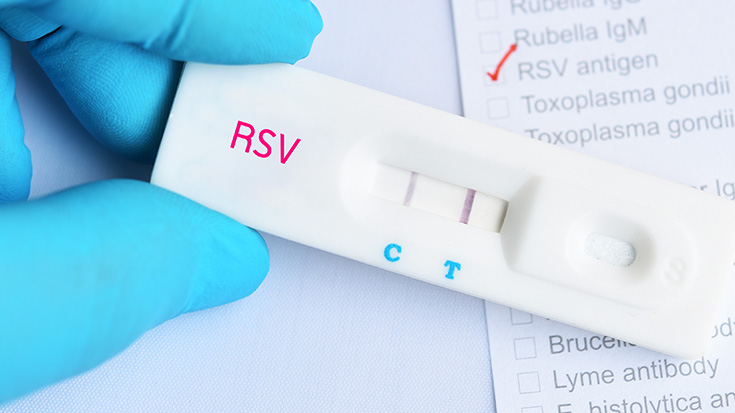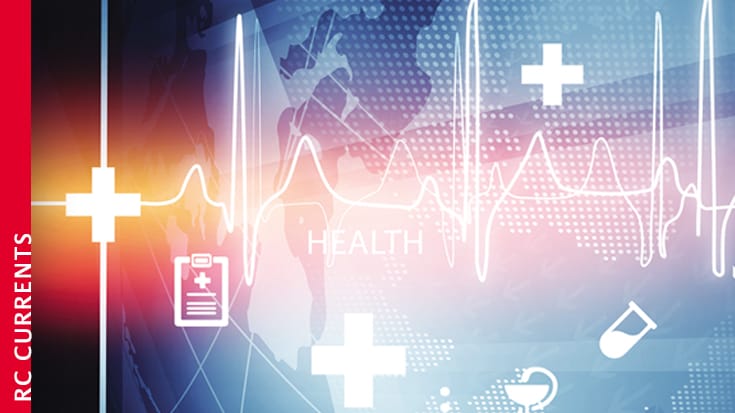
Hospitals across the country are facing an unprecedented rise in patients battling the respiratory syncytial virus (RSV). This virus is also surging much earlier than it has in previous years.
RSV hospitalizations on the rise
According to American Association for Respiratory Care (AARC) Member Joyce Baker, RRT, RRT-NPS, AE-C, from Colorado, before the COVID-19 pandemic, the RSV season usually started at the end of December and ran through April, often overlapping with flu season.
“The past two years our virus and influenza season was mild likely due to COVID-19 lockdowns, social distancing, wearing masks, and diligence in hand washing limited the spread not only of COVID-19 but many other viruses that spread through contact and aerosolization,” Baker said.
Baker continues to note that RSV hospitalizations have been on the rise since September. Most of the RSV cases being seen across the country are children under the age of 2 years. However, in some cases, older children and adults who have chronic lung or heart disease, weakened immune systems, or neuromuscular diseases.
“Since mid-November, hospitals are now starting to see an influx in COVID-19 and influenza resulting in increased acute respiratory illness and asthma exacerbations being seen in emergency departments and hospitalizations,” Baker said. “Experts are now calling this influx of RSV, COVID-19, and influenza a ‘tri-demic.’”
The RSV surge is branching across the country.
“Southern Illinois hospitals are experiencing a surge in RSV cases at this time,” AARC Member Lexie Caraway, MBA, RRT, RRT-NPS, RRT-ACCS, AE-C, from Illinois. “Some area hospitals are preparing to open additional pediatric rooms, rather than relying on their usual process of transferring patients.”
Caraway explains that this is partly due to larger hospitals being at or near capacity.
“Respiratory therapists have shown great adaptability to meet the needs of their patients by training on additional equipment and by preparing to care for this patient population,” Caraway said.
Straining our health systems
As expected, this unanticipated surge is putting a strain on the health care community. This strain affects pediatric offices, ambulatory clinics, and hospitals. We have also seen a shortage of pediatric antibiotics, another effect of the RSV surge.
“In some cities, states, and regions, hospitals are near bed capacity,” Baker said. “This alarming surge only continues to place strain on a health system reeling from the COVID-19 global pandemic where nursing and respiratory therapist shortages continue, and global supply chain issues remain a problem.”
Because of this strain, the Children’s Hospital Association and the American Academy of Pediatrics requested the Biden administration declare a state of emergency.
“Declaring an emergency would allow health care systems to adapt new spaces to care for patients, receive amnesty if they need to transfer patients to other sites to manage capacity, expand state licensure to allow for telehealth across state lines, and free up resources to meet the growing health care needs.”
Unfortunately, the national emergency request was denied.
Help stop the spread
As this holiday season brings get-togethers and increased traveling, helping prevent the spread of RSV is imperative. To do this, it’s important to know the symptoms of RSV and how it may differ from other viruses. According to AARC Director of Education Mandy De Vries, M.S.-RCL/Ed, RRT, RRT-NPS, RSV and Flu often bring fatigue, body aches, and respiratory distress, while COVID-19 may present with loss of taste or smell. (Learn more about RSV at the CDC website.)
“It’s important to seek medical attention for any concerning symptoms, but especially severe shortness of breath or difficulty breathing, as these could signal the need for supplemental oxygen or other emergency interventions,” De Vries said.
Help your health care community and help keep yourself out of the hospital by taking preventative measures to reduce the spread of viruses.
- If you are sick, stay home.
- Cover your coughs and sneezes.
- Avoid close contact with others.
- Wash your hands and maintain proper hygiene practices.
- Clean frequently touched surfaces.
“When it comes to self-medicating, it can be difficult to know when it’s time to seek professional help,” De Vries said. “However, certain red flags indicate it may be time to consult your respiratory therapist.”
Seek medical help if you have a chronic or recurring illness that does not seem to improve despite your attempts at self-treatment. Another is if you begin experiencing new or worsening symptoms, especially if they involve difficulty breathing or chest pain. Additionally, suppose you are unsure which treatment would be most effective for your symptoms. In that case, it is best to consult a medical professional, such as a respiratory therapist, for respiratory issues.
“The best way to determine whether professional help is needed is through careful observation and awareness of your body and its limitations,” De Vries said. “Reach out for medical assistance when necessary.”
Email newsroom@aarc.org with questions or comments, we’d love to hear from you.















